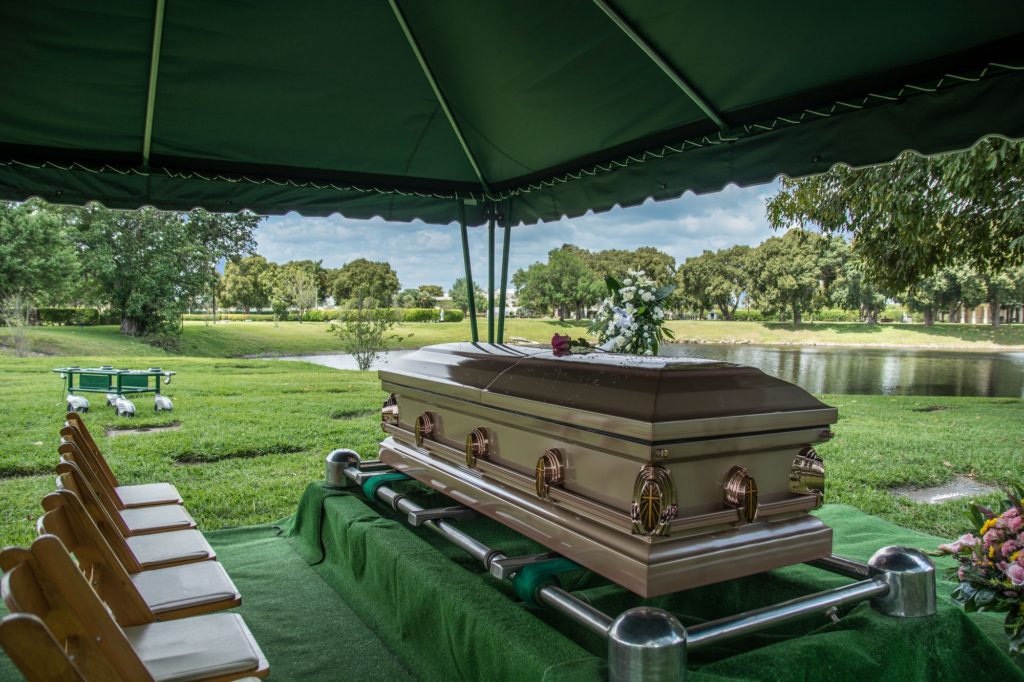Funeral and burial costs can be paid in a variety of ways, including the use of final expense insurance and pre-need plans. Although the terms are frequently used interchangeably and may appear to be the same thing, there are subtle differences between them.
Both methods provide funds for end-of-life expenses, and the process of selecting one encourages people to make plans for their eventual death.
Understanding the differences between final expense insurance and pre-need plans is a good place to start when it comes to funeral pre-planning.
Planning allows you can document your final wishes and make arrangements according to your personal preferences. However, how you pay for pre-arranged funeral and burial costs is an important part of the overall strategy.
What Is Final Expense Insurance and How Does It Work?
Final expense insurance, also known as burial insurance or funeral insurance, is a type of life insurance policy that pays for the insured person’s funeral and burial expenses after they pass away. This plan allows you to name a beneficiary – usually a close relative or friend – who will manage the funds after your death, using them to cover funeral or cremation expenses as needed.
Funeral insurance policies guarantee a set amount of insurance proceeds, and the policy is typically based on anticipated final expense costs.
What Should Your Final Expense Insurance Cover?
According to current estimates, an adult funeral (excluding burial) costs $7,848 on average, while a full-service cremation costs $6,970. A final expense insurance policy should cover all of the costs, and most policies range from $5,000 to $40,000, depending on the individual.
While the money is typically intended to cover funeral and burial expenses, the beneficiary can use it to pay off medical bills and other debts.
Since a beneficiary can spend the money however they would like, it can make some people feel a bit uneasy. As a result, some people prefer to choose a funeral service provider (funeral home, crematory, or cemetery) to avoid funds being misappropriated.
After all funeral and burial costs have been paid, funeral home or cemetery beneficiaries must still pass any remaining funds to the deceased’s family or estate.
Benefits of Final Expense Insurance:
- Allows you to select a specific amount of insurance for your budget while maintaining fixed premiums.
- No medical exam is required. As a result coverage decisions are made quickly, and eligibility is usually determined by answering a few (if any) health questions.
- Final Expense insurance policies pays out quickly so that beneficiaries can pay for funeral expenses on the day of the service.
- The insured person is covered for as long as they live (if all premiums are paid in full).
- The proceeds are not restricted to funeral and burial costs and can be used to settle any outstanding debts (e.g., hospital bills, mortgages, credit cards)
Drawbacks of Final Expense Insurance:
- Beneficiaries are free to use the insurance proceeds in any way they see fit, which means the funds may not be used as the deceased intended.
- Insurance proceeds are fixed, they may not be enough to cover the full cost of the funeral, cremation, or burial, and the family will be responsible for the difference.
What Does a Pre-Need Plan Involve?
Funeral homes specifically offer this type of insurance policy (also known as prepaid funeral plans) to cover the cost of pre-planned funeral, cremation, and burial services.
Pre-need insurance allows you to plan and pay for your funeral or cremation service in advance (based on your personal preferences). It may seem overwhelming, but making funeral arrangements sooner rather than later will help you organize your affairs.
Paying for your funeral in advance is also a thoughtful gift for your family in the aftermath of your death, as it relieves family members of financial stress during their grief.
How do I buy a pre-need insurance policy?
Select a funeral home to handle your funeral arrangements to begin your pre-need plan. Make an appointment with the funeral director to learn more about their pre-paid plans.
Pre-need agreements allow you to “lock-in” today’s prices for guaranteed funeral services when you die, depending on your final wishes (such as a viewing service, casket choice, flowers, etc.).
You won’t have to worry about inflation or rising overhead costs if you prepay for these guaranteed services.
Benefits of Pre-Need Insurance :
- Allows you to plan a unique and memorable funeral service while saving money.
- Paying in advance ensures that services are provided at today’s prices. Pre-need plans can be paid in one lump sum or in installments.
Drawback of Pre-Need Plans:
- Plans may not be transferable, which could be a problem if your preferred funeral home changes hands or closes, or if you relocate to a new location far away from your original funeral home.
- Money set aside for a pre-need contract cannot be used for other, potentially more profitable investments.
Funeral Planning Requires Communication Whether you choose final expense insurance or a pre-need plan to cover the costs of your funeral, cremation, and/or burial, it’s critical to communicate your wishes.
Make your funeral arrangements and prepayment plans known to family members or close friends so they are aware of your final wishes. This prevents them from falling into the financial trap of paying for services that have already been paid for through burial insurance or a pre-paid funeral plan.
Need help determining what options are best for you? Reach out for a no obligation quote and consultation. Kelleher Insurance offers both final expense insurance and pre-need planning through Legacy of Love. Depending on your state there could be several options available.

